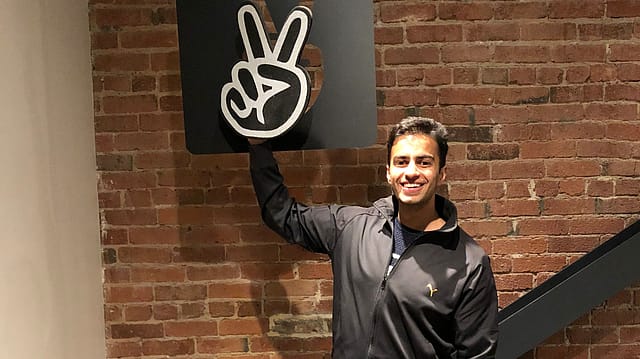AngelList India head Utsav Somani launches micro VC fund
ADVERTISEMENT

A clutch of entrepreneurs, angel investors and venture fund managers, predominantly from the Silicon Valley and India, have backed iSeed, a micro venture capital (VC) fund that aspires to be much more than yet another pool of capital.
iSeed aims to become an enabler that helps Indian entrepreneurs learn the tricks of the trade directly from the vanguards of Silicon Valley, at a time when several India startups are looking at overseas expansion.
Its roster of investors reflects the company’s vision. The fund’s backers include Naval Ravikant and Babak Nivi, co-founders of AngelList; Jake Zeller, partner at AngelList and founder of Spearhead; Sheel Mohnot, general partner at 500 Fintech; Brian Tubergen, co-founder of CoinList; Jack Herrick, founder of wikiHow; Jonathan Swanson, co-founder of Thumbtack; and Bryce Maddock and Jaspar Weir, co-founders of TaskUs, among others. Deepak Shahdadpuri, managing director at DSG Consumer Partners, Kavin Bharti Mittal of Hike, and senior executives at DST Global, Matrix Partners India, and Xiaomi have also backed the fund.
Founded by Utsav Somani, a prolific angel investor—his portfolio includes BharatPe, Testbook, Jupiter, Mosaic Wellness, Sleepy Owl Coffee, and Sugar Cosmetics, among others—and partner at AngelList India, iSeed will back pre-seed to pre-Series A companies with roughly $150,000 cheques, alongside other angels and institutional investors. In essence, iSeed is fine backing ideas and helping them transform into viable businesses.
In iSeed’s cohort of backers, entrepreneurs will find access to otherwise inaccessible mentors and coveted global connections.
“A lot many founders want to connect with somebody in (Silicon) Valley who have been there and done that, because the knowledge pool in India is very limited. We have exported products and services but we have not imported some of the knowledge that is available in the global markets. Now, we are coming to an era where entrepreneurs want more knowledge than capital. India has more capital than knowledge at this point of time,” says Somani.
“I am not bringing capital to the table. I am bringing knowledge to the table. The capital comes as a small cheque to have skin in the game,” he adds.
For its limited partners, iSeed is the gateway to India, possibly one of the last frontiers to capture for venture funds and technology companies alike, largely because the U.S. and Chinese markets have somewhat saturated. While institutional investors from the U.S. and China have been active in India for quite some time, angel investors haven’t had any notable play in Indian startups.
According to Somani, they were constrained by the lack of access. iSeed has set out to “institutionalise angel investing”.
“I am curious to have some exposure to India given how well AngelList India has been doing. It’s always exciting to back first-time fund managers who bring access and energy with them,” says AngelList co-founder Ravikant, an investor in iSeed.
According to Somani, several angel investors in the U.S. echo Ravikant’s sentiment.
“India is under the radar. Everyone is willing to help out because they want knowledge about emerging economies. They are financially invested, so, as they spend some time with the founders here, both stand to gain. People are very curious about India, especially the early levels, and nobody has given these founders who write $100,000-$500,000 cheques, access to the Indian market,” says Somani.
iSeed will invest in about 30-35 startups over the next 30 months, largely targeting companies in software as a service, education technology, logistics and remote work, among others. While Somani declined to divulge the fund’s corpus, micro VC funds usually invest from a $5 million-$25 million pool, mostly managed by a single fund manager.
Micro VCs are quite a phenomenon in the U.S. For instance, Marc Andreessen and Chris Dixon backed Work Life Ventures, a fund focussed on the future of work, has Webflow and Tandem in its portfolio. Shrug Capital, another micro VC fund, has backed the likes of Superhuman, Atoms, and HQ Trivia. Similarly, Product Hunt founder Ryan Hoover’s Weekend Fund has backed at least 30 companies. A TechCrunch report puts the number of sub-$25 million venture funds in the U.S. at 147 in 2018, against just 13 in 2008.
Unlike the U.S., micro VCs haven’t yet soared in popularity in India. Better Capital and First Cheque are among some of the home-grown micro VC funds.